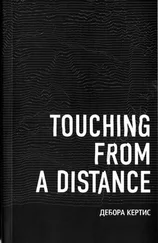That evening, after driving the wagons into a circle for the night, in front of Jarvis’s fire, there was a long line of people humbly waiting to present him their offerings. Some of them even had horses.
Rather than pulling the wagons, the oxen, with drooping heads and foaming noses, seemed to be making the crust of the entire planet turn under their hooves. Journeying through the untrodden flats was like moving through a surprisingly thick substance. In addition to the boulders and holes hidden in the grass, constantly threatening (and often breaking) axles and tires, there was the resistance presented by dirt that had been packed down neither by wheel nor hoof. They were going less than half their regular speed—someone said he reckoned they were down to seven or even five miles a day. Jarvis remained as sunny as ever. He said that one mile on the cutoff was worth twenty on the trail of those stubborn tramps.
Although weakened by the loss of blood, the mutilated boy was making a good recovery. He remained sedated for a few days, running a constant low fever that Håkan took as a positive sign of his body burning away disease. Now and again, in his sleep, the boy would frantically scratch the sheets where the missing limb would have been. Håkan came by to inspect the wound more often than necessary. After he examined the stitches, the girl would often give him food or a cup of milk to make him stay a little while longer. Håkan would eat or drink in a blushing silence. When he mustered the courage to turn his eyes up, he sometimes found her looking at him with something he liked to believe was admiration.
Depending on the day, her hair could be copper or gold, and with her hair, her eyes changed from green to gray. Her freckles multiplied, vanished, reemerged, and moved around like constellations from one visit to the next. Håkan had never looked at anyone with such close attention and wondered whether all those mutations were real or just the result of his heightened awareness. He spent most of his nights awake, imagining what she would look like the following day.
Had it been left to Håkan, he never would have learned her name. She seemed to understand that he was too shy or afraid to engage in conversation and that any form of encouragement would make him withdraw further. But she managed to convey her openness through small gestures. And it was in this spirit that Helen volunteered her name, without asking for his. After a moment of apparent hesitation, he explained that his name was not Hawk but Håkan. Helen was one of the few people in America who actually tried to pronounce it. She laughed as she searched for the exact shapes of those strange vowels, but even as Håkan laughed along, he fell into a solemn trance watching her lips move around his name. That day, she also wrote his name down, unsure of the spelling, on a piece of paper that Håkan would keep for years, thinking, each time he looked at it, that he was there—in those fading lines on that yellowing scrap of wrapping through which an irretrievable past managed to persist in the present—in a more intense way than in his own body. Once, he brought dried fruits and sweetmeats. They did not dare to even touch them.
In each of his visits, Håkan tried to avoid the child’s father. He believed the story about Jarvis’s fraud to be true, but he still carried the big gun at his belt, and that made fraternizing with the man difficult. Håkan was eager to sever the ties to his employer, but part of his concern was that if he returned the gun, Jarvis would give it to somebody else, probably to someone more eager to pull the trigger. As Håkan saw it, as long as he had the gun, there was one weapon less to worry about. Not that he feared for himself—he had decided to leave Jarvis’s party. Effective or not, the cutoff was delaying him beyond his plans. It had become clear to him that the promise of the horse was too far from being fulfilled and that he would be better off finding his way back to the trail and walking against the current all the way to New York. The situation with the gun, then, had nothing to do with his own safety. He was concerned about the wounded boy and his sister. What would become of them? Who would stand up for Helen? For the first time, Håkan was torn between loyalty to his brother and a commitment to a new person.
Although flanked by low hills, the modest basin they were traveling through barely deserved to be called a valley. It was a girl who first spotted the riders emerging behind the ridges. As in a procession, the men appeared one by one, until there were six of them on each side of the valley, about a quarter of a mile ahead. Håkan turned around and saw a similar formation emerging a few hundred paces away from the rear end of their party. He could feel their cautious, hostile gaze. If they galloped down the slope, the riders could easily cut the party off. The train was brought to a stop. A few more riders appeared from behind the hillocks.
“Circle! Circle!” cried Jarvis.
With a slowness that contradicted the urgency in the air, the wagons were brought into a circle. It was unclear who gave the order, but the men started to barricade the gaps between the wagons with crates, tables, casks, and sacks of grain and flour while the women loaded the guns—mostly single-shot pistols and muskets—and got out clubs, knives, and even swords made out of ploughshares. There was little or no talking. Slowly, the riders moved toward the barricaded pioneers along the edges of the hills. A hoot came from the group flanking the northern end. The ones in the south responded. The riders trickled down from all four sides.
“Indians!” someone cried as they got closer.
The men, wrapped in buffalo hides, had painted faces and feathered heads. They surrounded the convoy. From under their leather frocks, they produced long rifles, muskets, and blunderbusses.
“Down, everyone!” a woman screamed.
Another hoot, and all the riders opened fire at once.
As the blasts echoed away, a hoarse moan grated its way through the ensuing quiet. Håkan looked up and saw an ox kneeling down and then collapsing on its side. The dogs ran up to it to lap up the pooling blood.
“There are children here!” yelled a man.
“Fire!” Jarvis cried.
The emigrants shot back. The air became thick with powder smoke. Nobody was hit.
The riders started the long process of reloading and so did the women, ready with ramrods and pouches of shot while the men buttressed the barricade. When the guns were ready, they resumed their post.
After a moment of silence, a hoot, followed by a fusillade.
The emigrants fired back.
Nothing. Aside from a few holes in some wagon bonnets, the shots on both sides had been as good as blanks.
The besiegers broke their formation and got together to confer.
“They’ll never get us,” said Jarvis in a loud whisper to the whole party. “They can’t get close enough. They can’t.”
“But for how long can we hold up?” asked a woman.
“Oh, weeks,” replied Jarvis with a dismissive swat. “But they won’t stay for weeks. Not worth it.”
A few wagons to the right, a man began a murmured quarrel with his wife, who, from what Håkan understood, had convinced him to leave the safety of the trail.
Suddenly, and without looking back, the riders left for the hills, climbed the slope, and disappeared behind the edge. Some of the emigrants cheered. Jarvis called for silence.
“This is not how it ends,” he said.
The men kept guard. The women made lunch, stirring the pots with the ramrods. Nobody spoke. There was a heightened awareness of the present. As he ate his food, Håkan felt that he was saying good-bye to something.
About half of the Indians returned. Once again, they surrounded the wheeled convoy. After a pause followed by a hoot, they opened fire. The emigrants responded. No one was hit. Everyone reloaded, and there was another volley of guns. Bullets whistled and whined by, missing their targets by a long way. There were three or four of these loud and harmless exchanges.
Читать дальше












